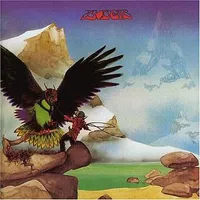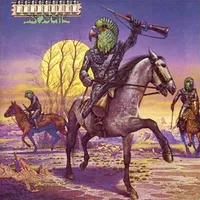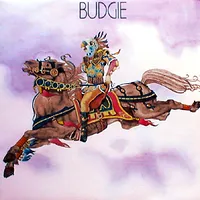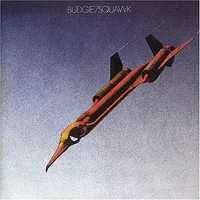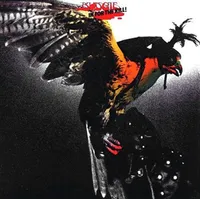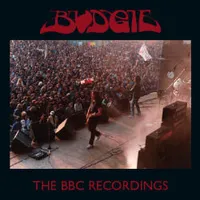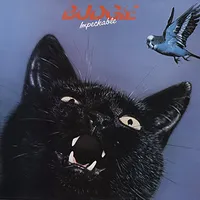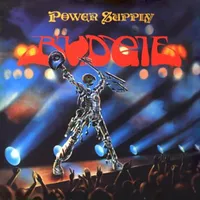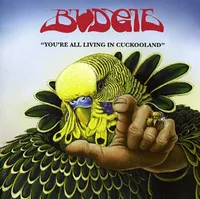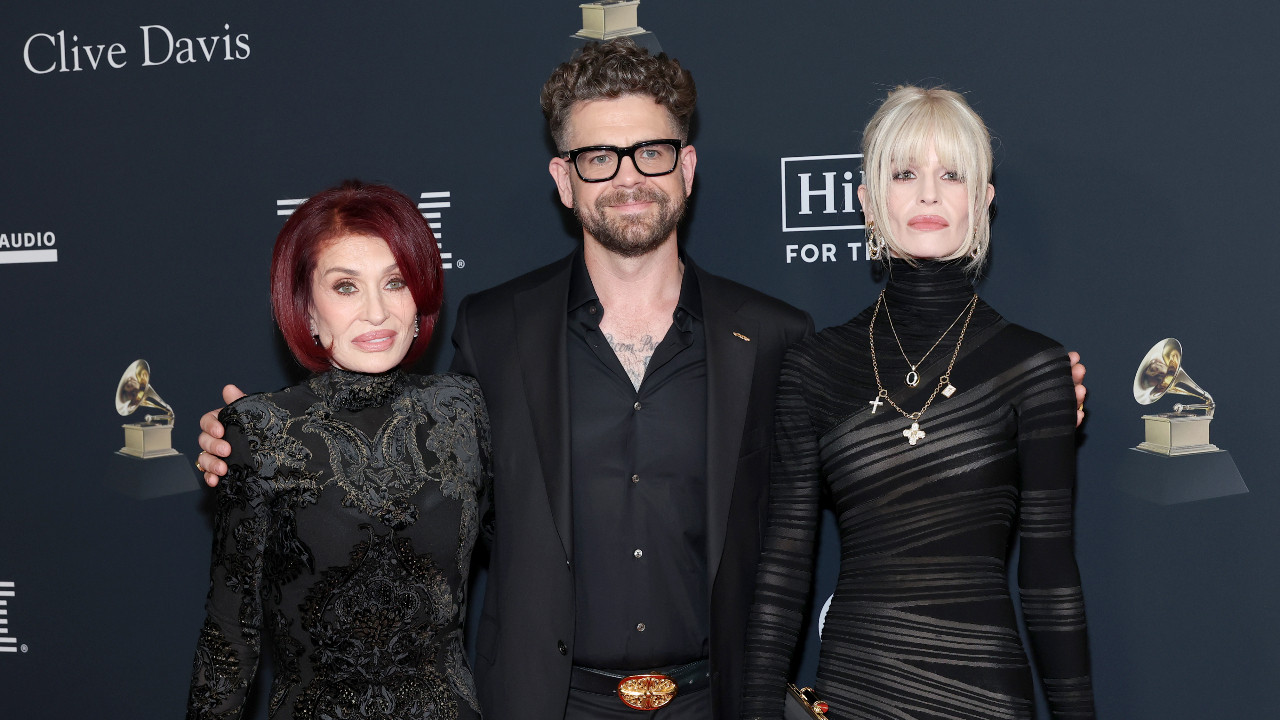The Budgie albums you should definitely own
Heroes to the NWOBHM – and covered by Metallica, Soundgarden, Megadeth and Iron Maiden – Welsh legends Budgie are the ultimate example of a band whose influence outshone their commercial impact
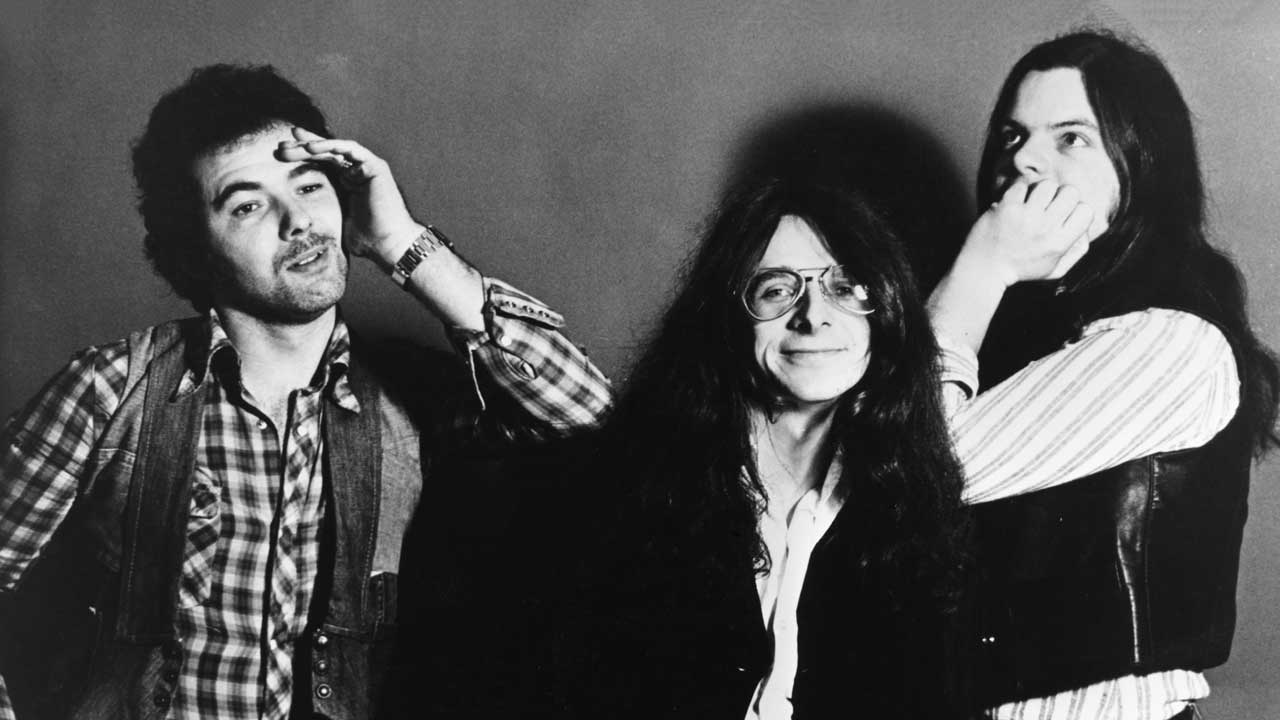
Originally known as Six Ton Budgie, Budgie’s first flight was above Cardiff in 1967. Taking their cue from Led Zeppelin and Cream, the trio’s big-riffing style first took shape on 1971’s self-titled debut, produced by Rodger Bain (who worked on Black Sabbath's first three albums).
“I loved the idea of playing noisy, heavy rock, but calling ourselves after something diametrically opposed to that,” said Burke Shelley, the bassist with the spectacles and the high-pitched voice.
That said, as fans of The Beatles, Budgie also knew that juxtaposing a Sabbath-style wall of noise with veneers of acoustic fragility made the heavier parts sound more monstrous still.
A predilection for ludicrous song titles – Don’t Dilute The Water, Nude Disintegrating Parachutist Woman, Hot As A Docker’s Armpit, You’re The Biggest Thing Since Powdered Milk soon became apparent.
Following the departure of Ray Phillips in 1973, Budgie began to experience drummer problems. It says much of their unpredictability that the following album, 1974’s hurriedly completed and distinctly patchy In For The Kill, remains the group’s only Top 30 album.
With new drummer Steve Williams in place for Bandolier in 1975, Budgie’s fortunes appeared to have stabilised, only for co-founding guitarist Tony Bourge to leave three years later.
With their bankability fortuitously enhanced by the NWOBHM, Budgie opened for Ozzy Osbourne on his first two solo tours and headlined a night at the Reading festival in 1982.
Burke explained that with an increasingly demanding family life Budgie entered “a suspended state of animation” in 1988. The reason he reactivated the band in 1995 was, he said, because “I was broke”.
However, with their songs being covered by a succession of high-profile artists such as Metallica, who famously included a cover of Breadfan on their 1998 compilation Garage Inc.
“That’s when I realised the impact it had,” Shelley told Classic Rock in 2020. “It always went down well. But then a lot of our tunes did – they’d be shouting out for Breadfan, Napoleon, Parents. I remember being surprised that it was the one everybody knows about. Metallica must have thought it was a decent song. We got a lift from that, some street cred.”
Metallica also covered Crash Course In Brain Surgery), while Iron Maiden took on I Can’t See My Feelings and Soundgarden tackled Homicidal Suicidal. With credibility ensured, the royalty checks also made life a little more comfortable.
Burke Shelley died on January 10, 2022. He was 71.

Never Turn Your Back On A Friend (MCA, 1973)
Budgie’s third album is the perfect distillation of their style. Characterised by Tony Bourge’s inventive riffs, the high-pitched vocals of Burke Shelley and Ray Phillips’s industrious drumming, it is the work of a group full of self-confidence, who also benefitted from their first own production.
It contains the Metallica-popularised Breadfan, their most famous composition, plus the epic Parents, the latter debatably Budgie’s finest 10-and-a-half minutes. The bonus features of 2004’s expanded edition include footage of Breadfan from The Old Grey Whistle Test in 1973.
With its clever, Planet Of The Apes-esque cover image of budgies on horseback, Bandolier is Budgie’s most varied collection of songs. Introduced by Breaking All The House Rules, a boogie shuffle with a punchy guitar motif, this fifth album also has its fair share of drama. Slipaway is an achingly beautiful ballad, while the album’s single, a remake of Andy Fairweather Low’s I Ain’t No Mountain, displayed unappreciated chart potential.
But unquestionably its piece de resistance is the seven-minute Napoleon Bona-Parts One And Two; seductive and soft at the beginning, juxtaposed with a thunderous yet melodic climax.
Budgie’s self-titled debut was recorded in just three days with Black Sabbath producer Rodger Bain. The 2004 remaster narrowly failed to rectify its muffled sound. Sometimes used as a lead instrument, Shelley’s Geddy Lee-style screech and the band’s exploration of time signatures detract from Bain’s sludgy mix, resulting in a prime slab of beefy 1970s hard rock.
Looking back at this album, Shelley called the band’s instrumental skills “a bit dodgy”. But there’s no mistaking the spark of material like Nude Disintegrating Parachutist Woman and Guts, both of which remain in their current live set.
Once again produced by Rodger Bain (though this time in a week), Squawk saw Budgie attempting to occupy more progressive-inclined airspace. Although only a year after their debut, the band’s maturity was evident, from Tony Bourge’s extravagant guitar solo during the electrified pounding of Rocking Man, to the airiness of the acoustic Rolling Home Again and the Zeppelin-flavoured Make Me Happy.
The union of Shelley and Phillips’s rhythmic interplay and Bourge’s fretboard dexterity is best displayed on Hot As A Docker’s Armpit, a song indebted in part to Mars from Holst’s The Planets Suite.
With newcomer Pete Boot lacking Ray Phillips’s timekeeping discipline, Budgie’s fourth album was an absolute juggernaut. Although Boot turned out to be a temporary appointment his bulldozer technique was perfect for In For The Kill’s marauding title song (covered by Van Halen in their bar band days).
Crash Course In Brain Surgery was also made famous by mega-fans Metallica, and Zoom Club and the powerful blues of Hammer And Tongs bring strength in depth. And no Budgie album is complete without an interlude of lightweight whimsy, in this case Wondering What Everyone Knows.
The BBC Recordings (NotewoRthy, 2006)
Condensing the best bits from a pair of two-discs archive sets (1997’s We Came, We Saw… and the following year’s Heavier Than Air – Rarest Eggs) into a more manageable size, The BBC Years documents five sessions for the Beeb.
There are four songs from London’s Paris Theatre in 1972, a John Peel session two years later, three tracks recorded for The Friday Rock Show in 1981 and, best of all, material from two highly popular appearances at the Reading Festival from the early 1980s. With 23 tracks on offer there’s some duplication, but this collection is worth buying for the Reading material alone.
Frustrated by MCA Records’ lack of commitment, Budgie had moved to A&M for the previous album, but internal problems (including multiple divorces) failed to improve the situation.
Impeckable saw Tony Bourge add some funk-infused licks to his repertoire but it turned out to be the guitarist’s swansong. If, as Burke Shelley has claimed, the band were too preoccupied with lawyers to have fully developed its content, this self-produced album could have been frighteningly good.
There’s scarcely a second-rate song here, and All At Sea, Pyramids, Don’t Go Away, Don’t Dilute The Water and stage favourite Melt The Ice Away are all exceptional.
Of the reunited Budgie’s three albums with guitarist John Thomas, Power Supply pips the following year’s Nightflight at the post. But it’s a very close call.
With the focus on shorter though equally dynamic and more tastefully produced material, aptly titled bruisers like Forearm Smash, Gunslinger and the pick of the bunch, Crime Against The World, the reborn Budgie were embraced by aficionados of the New Wave Of British Heavy Metal, despite the limp Time To Remember. A 2000 Repertoire Records revision adds the If Swallowed Do Not Induce Vomiting EP.
You’re All Living In Cuckooland (NotewoRthy, 2006)
Unlike many of their contemporaries that returned from 20-year recording breaks, Budgie offered not even the faintest whiff of tokenism with You’re All Living In Cuckooland. Burke Shelley and Steve Williams had gigged extensively with their new (now departed) guitarist Simon Lees, whose style integrated flashy lead runs and the heavy-duty riffing of his many predecessors, best exemplified by Dead Men Don’t Talk and Justice.
The hugely memorable title song was an engaging slice of balladry, I’m Compressing The Comb On A Cockrell’s Head was yet another trademark preposterous title.
Sign up below to get the latest from Classic Rock, plus exclusive special offers, direct to your inbox!

Dave Ling was a co-founder of Classic Rock magazine. His words have appeared in a variety of music publications, including RAW, Kerrang!, Metal Hammer, Prog, Rock Candy, Fireworks and Sounds. Dave’s life was shaped in 1974 through the purchase of a copy of Sweet’s album ‘Sweet Fanny Adams’, along with early gig experiences from Status Quo, Rush, Iron Maiden, AC/DC, Yes and Queen. As a lifelong season ticket holder of Crystal Palace FC, he is completely incapable of uttering the word ‘Br***ton’.
